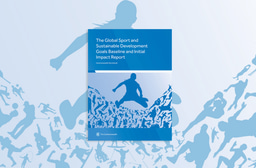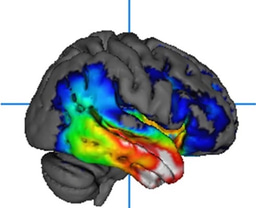Reaching out to the most excluded people in our society
Published in Healthcare & Nursing

My colleagues and I are proud to see that our work is rewarded by a beautiful publication in Communications Medicine. This paper is the result of an adventure that began in early 2021 when COVID-19 vaccines were only starting to become available in France, initially in a very selective and limited manner due to supply chain issues caused by fierce competition among most developed countries.
Here at Doctors Without Borders (MSF), we were quick to ask ourselves about access to these vaccines for the most vulnerable populations, who are often forgotten in global vaccination strategies, as well as access to healthcare in general, as we had observed during the first waves of COVID-19.
French authorities quickly acknowledged their inability to include these populations in the national deployment and early on approached NGOs, mainly MSF, to find out which ones would be willing and logistically capable of delivering vaccines to thousands of people, whether migrants or not, living on the streets of France.
At first, NGOs were hesitant, as it was always surprising to see a wealthy country like France relying on charities to carry out the essential work in the field. Finally, from May 2021, MSF and a few other field actors embarked on a serious effort to vaccinate the most precarious in the Île-de-France and other major cities where the vast majority of people living on the street and in shelters are concentrated. For four months, MSF vaccinated nearly 5,000 people in the city of Paris and its suburbs, mainly with two doses of the Pfizer vaccine.
At the same time, we quickly asked ourselves the question of evaluating the vaccine coverage in these populations but, above all collecting the elements to characterize and understand a possible low (or high!) coverage, which is generally the case for other antigens. We partnered with Santé Publique France, the national agency for disease surveillance in France, and therefore for COVID-19, and brought together various experts in the field of social determinants of health (SDOH) among vulnerable populations, sociologists, and field actors.
Studies within populations "excluded from the system" are very rare, in the end, and are scary for official organizations usually called upon to conduct them. Dealing with people without any official papers, who sometimes entered the territory illegally, creates a strong political risk of instrumentalization and controversy ("clandestine people are vaccinated before the French!", "why are they entitled to vaccines if they are clandestine", etc.). Our motto, at MSF as in other NGOs, is to overcome these considerations and to consider everyone on an equal footing.
The real challenge in this study, however, was to gather the necessary information to design the appropriate methodology: these off-radar individuals are very little known, their exact location very fluctuating, and official figures often incomplete and quickly outdated.
Therefore, we wanted to find out how many people from vulnerable populations were being vaccinated for COVID-19. But this information is hard to get by in such populations since they are often excluded from official records, like people without official papers or those who entered the country illegally. To gather information, we reached out to different organizations like charities and even state agencies like subway public companies and local government offices to estimate population figures and where people live or spend time. We found that we needed to include temporary residents of emergency shelters and workers’ hostels, such as migrants, because they were at high risk for COVID-19 based on our previous studies ( https://doi.org/10.1016/S2468-2667(21)00001-3). Only about 5,000 people live permanently on the streets or in the metro corridors of Paris and suburbs, so we also needed to include people who experience recurring periods of homelessness, such as those who stay in temporary shelters or squats. Some groups, like the Roma communities, live in makeshift camps under the highway or in parks, and their living conditions are not much better. To study these populations, we used the ETHOS Typology to organize the selection of participants for our study.
The strength and uniqueness of our study probably lies in its methodology. We were very concerned with creating the most representative sample in each group of people. We wanted to meet and talk with them in the places they lived or passed through, rather than relying on records or databases. We thus recruited investigators who could speak the most common languages spoken by the potential participants, and trained them to collect data in the most reliable and humane way possible. However, it was not easy to approach roofless people or to access squats and slums. Surveyors faced many refusals, which often reflected a sense of frustration with the media's focus on COVID-19 and vaccination, rather than on their basic needs for housing and documents. In the end, our surveyors managed to interview nearly 4,000 people and collect high-quality data.
In April 2022, we released the first study in Europe to document access to vaccines for people facing great uncertainty. Our report was widely shared, and we presented our results to the Scientific Council and the Vaccination Strategy Orientation Council. Here are the main findings (more details of course in the publication):
- Having housing, even temporary, is the main factor for getting vaccinated. People living on the street have less access to vaccines than those living in shelters or hostels.
- Access to housing often comes with dedicated support for health and administrative issues. The more access people have to the regular system and are supported by associations, the more they seek information from trusted people, and the higher the vaccination coverage.
- Some national vaccination strategies, such as administering vaccines at the place of accommodation or during food distributions, have been successful. Removing physical barriers to access should be a priority for these populations.
- Personal motivations mattered more than access barriers to vaccines for the most excluded people. People who are "anti-vaxxers" or skeptical of authorities, like in the general population, did not get vaccinated. Rumors, fake news, and peer influence are strongly present in these communities.
We hope these findings can help authorities and field actors serve excluded populations beyond health crises. We plan to further study vaccination determinants and capitalize on our field experience.
Bonne lecture !
Follow the Topic
-
Communications Medicine

A selective open access journal from Nature Portfolio publishing high-quality research, reviews and commentary across all clinical, translational, and public health research fields.
Related Collections
With Collections, you can get published faster and increase your visibility.
Reproductive Health
Publishing Model: Hybrid
Deadline: Mar 30, 2026
Healthy Aging
Publishing Model: Open Access
Deadline: Jun 01, 2026
Recommended Content
Why is Singapore Identified in Global Research as Number One? How Physical Activity and Education Excellence Created a Global Leader




Please sign in or register for FREE
If you are a registered user on Research Communities by Springer Nature, please sign in